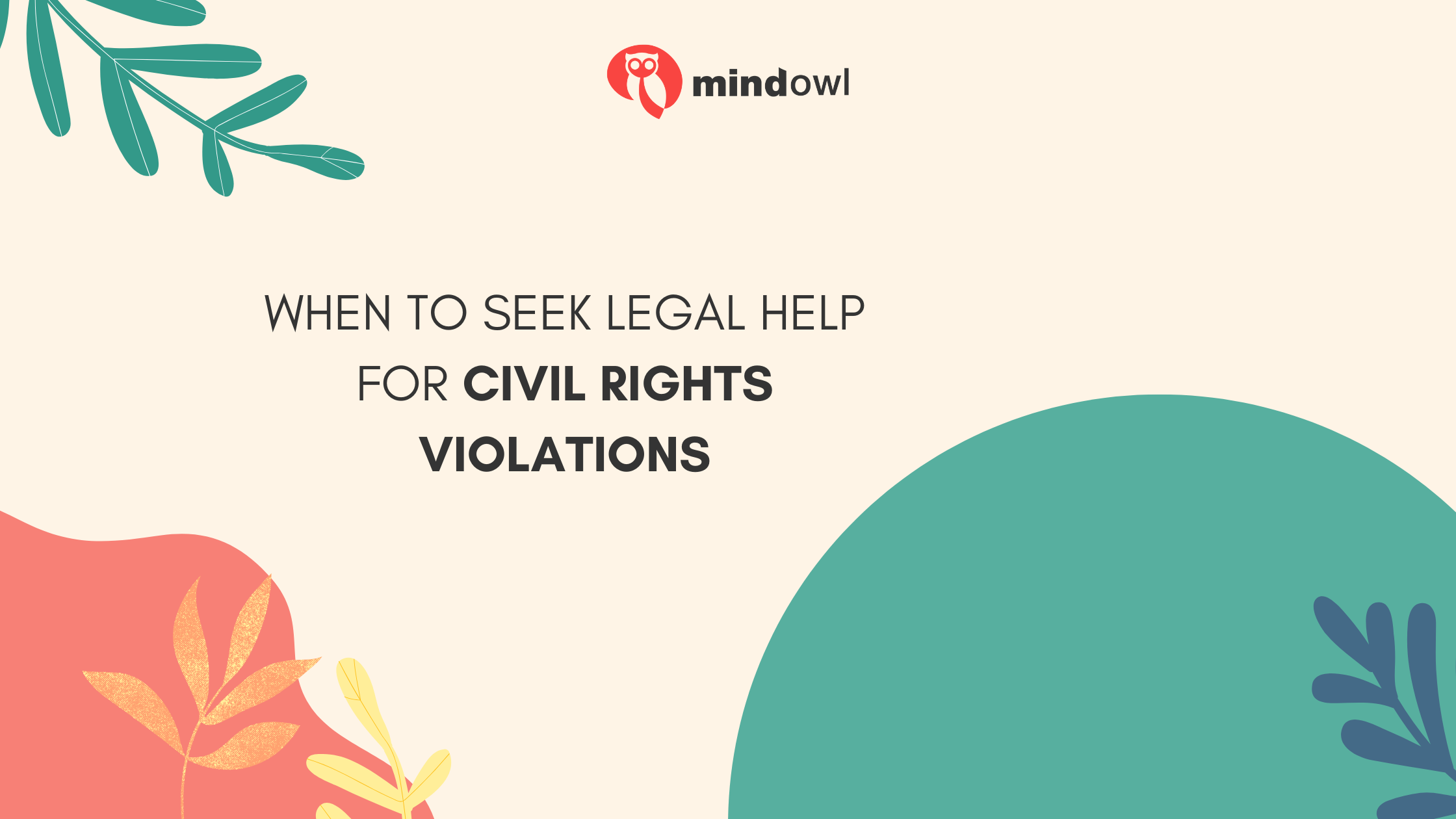Civil rights are fundamental rights guaranteed to every individual, protecting against discrimination and infringement caused by government entities or private individuals. These rights encompass various aspects of life, including the right to live free from violence and intimidation. When these rights are violated, individuals often find themselves emotionally and physically taxed. In such situations, understanding when and how to seek legal help is paramount to reclaiming one’s rights and restoring a sense of safety.

Physical Assault: Recognizing the Signs
Physical assault is more than just the act of hitting or hurting someone; it encompasses any intentional act that causes physical harm or creates a reasonable fear of harm. Often, this violation occurs within contexts involving biases based on race, gender, sexual orientation, or disability, making it a civil rights issue. Victims may feel confused or intimidated, unsure of their options regarding justice. When someone experiences physical assault due to their identity or beliefs, seeking immediate medical care should be the priority, followed closely by legal counsel. Understanding the legal definitions surrounding physical assault can help victims make informed decisions. Engaging a law firm that specializes in civil rights violations can provide essential guidance, especially firms like Belluck & Fox, LLP, whose expertise in such matters can be invaluable. Beyond the immediate aftermath of an assault, documenting injuries and gathering evidence through witness statements or photographs is crucial. These steps can support a future legal case, demonstrating the violation of civil rights. The emotional toll from an assault can be debilitating; hence, it’s equally important to seek emotional support or counseling alongside legal advice.
Understanding Your Civil Rights
To effectively fight back against civil rights violations, it is essential to understand the scope of your civil rights. These rights protect individuals from discriminatory actions taken by state and local governments, law enforcement, and more. Key federal laws include the Civil Rights Act, the Fair Housing Act, and the Americans with Disabilities Act, all aimed at ensuring equal treatment in various areas. Understanding your rights can empower you to recognize when they are violated. Education on civil rights can also help you identify the specific laws that may pertain to your situation. This understanding is a vital first step toward seeking legal counsel and pursuing any claims against those who have wronged you, providing a strong foundation for any legal battles that may arise.
When to Seek Legal Assistance
The decision to pursue legal action can be daunting, but there are specific circumstances that clearly warrant it. If you have experienced physical or verbal harassment or discrimination at work or in public spaces, or if a governmental entity has violated your rights, it is time to consult a qualified attorney. One major indicator that you should seek assistance is persistent harassment or threats. If these actions create a hostile environment impacting your daily life or well-being, immediate legal advice can help navigate the situation effectively. Legal professionals can also help you understand your options for filing complaints with the appropriate governmental agencies, potentially leading to investigations and resolutions. If you perceive that your rights are being denied or violated, delay in seeking legal counsel may cause the situation to worsen. Many cases have a statute of limitations; thus, prompt action is essential to preserve your rights and potential claims.
The Role of Legal Representation

Engaging an attorney specializing in civil rights is critical because they not only understand the intricacies of the law but also advocate for your rights throughout the legal process. Legal representatives can assist in compiling evidence, negotiating settlements, and advising on the most effective strategies for your case. Moreover, attorneys experienced in civil rights cases often evaluate claims for validity, providing a pragmatic view of the potential for success. They can help mitigate the anxiety associated with pursuing justice, allowing you to focus on healing rather than getting lost in legal jargon and processes that are often overwhelming for the layperson.
Common Civil Rights Violations
Several common scenarios often lead to civil rights violations. One significant area is employment discrimination, where individuals are treated unfairly due to their race, gender, or disability status. Other prevalent violations occur during encounters with law enforcement, where excessive force may be applied, or unjust arrests may take place closely related to racial profiling or discrimination. Housing discrimination is another issue; individuals may face obstacles in renting or purchasing property based on race, religion, or familial status. Understanding these common violations can aid individuals in recognizing their own situations as actionable legal matters, encouraging them to take the necessary steps to address injustices.
Experiencing civil rights violations can be a harrowing experience; however, individuals can reclaim their sense of justice and safety through the right legal channels. Understanding the steps to take, knowing your rights, and engaging the appropriate representation can create significant momentum toward effective resolution and healing.
MindOwl Founder – My own struggles in life have led me to this path of understanding the human condition. I graduated with a bachelor’s degree in philosophy before completing a master’s degree in psychology at Regent’s University London. I then completed a postgraduate diploma in philosophical counselling before being trained in ACT (Acceptance and commitment therapy).
I’ve spent the last eight years studying the encounter of meditative practices with modern psychology.

